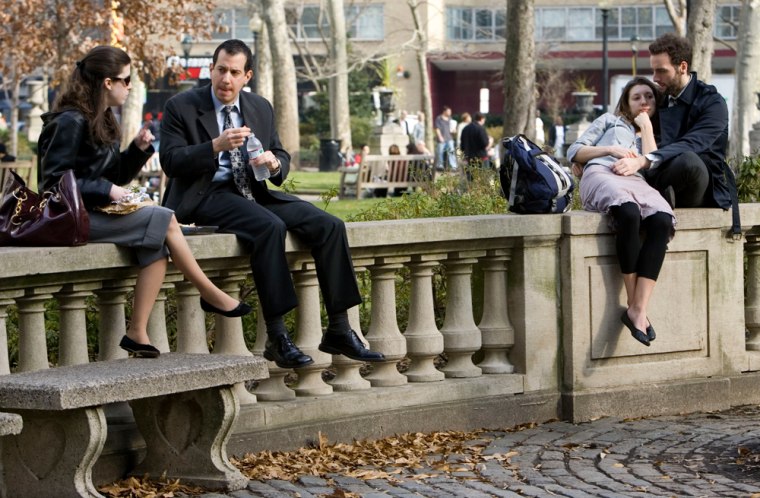Earlier blooms. Less snow to shovel. Unseasonable warm spells.
Signs that winters in the Northeast are losing their bite have been abundant in recent years and now researchers have nailed down numbers to show just how big the changes have been.
A study of weather station data from across the Northeast from 1965 through 2005 found December-March temperatures increased by 2.5 degrees. Snowfall totals dropped by an average of 8.8 inches across the region over the same period, and the number of days with at least 1 inch of snow on the ground decreased by nine days on average.
"Winter is warming greater than any other season," said Elizabeth Burakowski, who analyzed data from dozens of stations for her master's thesis in collaboration with Cameron Wake, a professor at the University of New Hampshire's Institute for the Study of Earth, Oceans and Space.
Burakowski, who graduated from UNH in December, found that the biggest snowfall decreases were in December and February. Stations in New England showed the strongest decreases in winter snowfall, about 3 inches a decade.
There were wide disparities in snowfall over the eight-state region, with average totals ranging from 13.5 inches at Cape May, N.J., to 137.6 inches at Oswego, N.Y. Some stations on the Great Lakes, where lake-effect storms are common, showed an increase.
The reduction in days with at least an inch of snow on the ground was the most pronounced at stations between 42 and 44 degrees latitude — a band that includes most of Massachusetts, a thick slice of upstate New York and southern sections of Vermont and New Hampshire.
Burakowski cites two likely causes for the reduction in so-called snow-covered days: higher maximum temperatures and "snow-albedo feedback," in which less snow cover to begin with allows more sunshine warmth to be absorbed by the darker ground, making it less conducive to snow cover.
Mother Nature's mood swings
The research has yet to appear in a peer-reviewed journal, though meteorologists who have studied long-term climate trends said the observations appear to be in line with other research.
Richard Heim of the National Climatic Data Center looked at trends in snowfall totals nationwide from 1948 to 2006 and found that patterns varied regionally and seasonally. For the Northeast in winter, he found totals mostly decreasing along coastal areas, with an increasing trend along the Great Lakes. Art DeGaetano, of the Northeast Regional Climate Center at Cornell University, said regions around New York state have recorded negative trends in snowfall since 1970.
DeGaetano cautioned that snowfall totals can vary a lot from year to year. Last month, for example, snow totals were well above average for December across much of the Northeast.
Ski center operators also have noticed an incremental increase in temperatures over the decades, said Parker Riehle, president of the trade association Ski Vermont, but he echoed DeGaetano's point that snow totals have gone up and down.
"We've seen some erratic winters in recent years," Riehle said. "The mood swings of Mother Nature, perhaps, are deeper than they used to be."
But while ski slopes can fire up snow-making guns to compensate for lack of flurries, snowmobilers and cross-country skiers have complained about later starts and fewer trails covered with snow.
Cross-country skiers never even get in the right frame of mind during some winters, said Mark Booska of the Hudson Valley Ski Club.
"They look out their window and they're not thinking skiing," he said.
